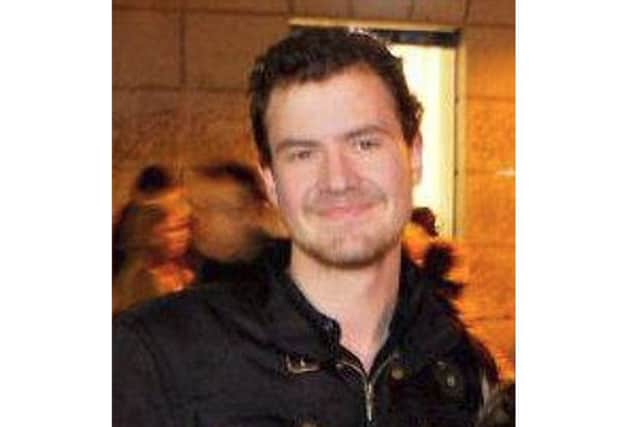US blocks extradition of former St Andrews student


American Alexander Hilton has been granted a stay of extradition in his homeland, despite Scottish prosecutors’ attempts to bring him back to the country to face charges of allegedly poisoning a fellow student at a university ball.
Hilton is accused of spiking Robert Forbes’ red wine with methanol at St Andrews University in 2011, during the New Hall Ball .
Advertisement
Hide AdAdvertisement
Hide AdMr Forbes, who was 19 at the time and is also from the US, suffered severe nausea and headaches for days and started to lose his vision before spending a week in hospital. He would have died had he not sought medical help.
Hilton, 21, returned to his home in Princeton, Massachusetts, in March 2011, less than two weeks after the alleged poisoning. Last May, Boston magistrate Judge Jennifer Boal ruled that Mr Hilton could be brought back to face an attempted murder charge.
Following the alleged incident, police sent a report to the fiscal in Cupar, Fife, in “relation to an offence of culpable and reckless conduct”. It is understood this has since been changed to attempted murder.
A warrant for Mr Hilton’s arrest was issued but his lawyers have claimed he suffers from severe mental illness and extradition could accelerate his condition.
On Monday, his lawyers successfully lodged an emergency motion to keep him in the US while he appeals the extradition order.
Boston attorneys Norman Zalkind and Monica Shah argued there was a “real and substantial risk” that Hilton would take his own life if detained in the US or surrendered to the Scottish authorities.
Hilton was initially arrested in February last year after a warrant was issued on behalf of the UK.
He was put in a cell at the Donald W Wyatt Detention Center in Rhode Island and subsequently placed on suicide watch.
Advertisement
Hide AdAdvertisement
Hide AdThe lawyers said in their motion: “If the stay and bail orders are not continued, Mr Hilton may be detained by the government and transferred to Scotland before he files his appeal or while his appeal is pending.
“Mr Hilton’s doctors believe such an action will destabilise Mr Hilton’s precarious mental health condition and lead to a high risk of suicide, particularly in light of the fact that his mother, who is his primary caretaker, is in the midst of treatment for late-stage breast cancer and cannot be a source of support for him should he be removed from his home, detained in federal custody, and transferred abroad.”
Mr Hilton argued that a trial by a jury of 15 in Scotland would violate his constitutional rights. However, the legal decision to grant the stay of extradition hinged solely on his mental health.
Granting the stay, Massachusetts district judge Timothy Hillman said: “If the decision is not stayed, the government could send Hilton to Scotland while his appeal is pending.
“There is ample evidence that Hilton is seriously mentally ill. He receives significant treatment for his mental illness from a team of medical professionals.
“He has improved while under the care of his medical team and family, but several of his doctors have opined that any disruption in treatment would greatly increase the risk of suicide.”
Judge Hillman, who continued Hilton’s bail, imposed the condition that updates on the status of his appeal against extradition be filed every 30 days.